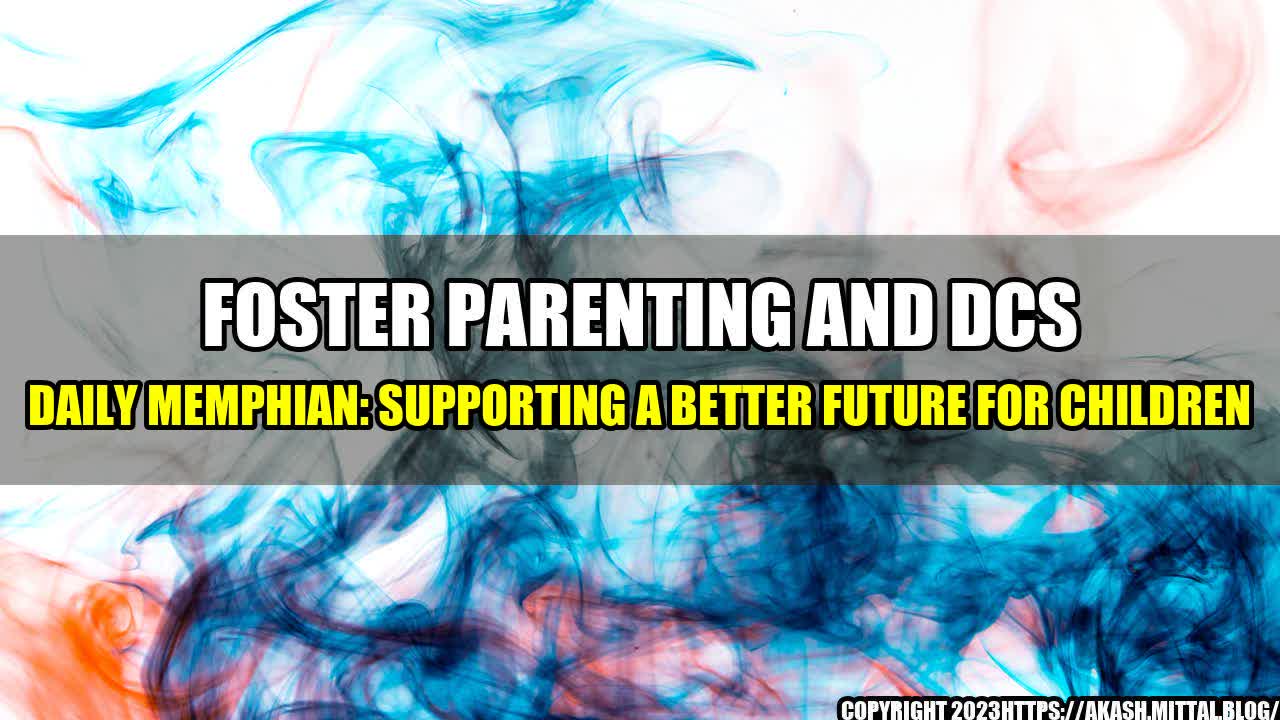
Once upon a time, there was a young couple who always wanted to become parents. However, after several years of trying, they realized it was not going to happen naturally. They decided to look into foster parenting and adoption. They went through the proper channels and jumped through all the hoops of background checks, home studies, and training. Finally, they became foster parents. They took in a three-year-old boy who had been removed from his home due to neglect. After a few months of love and attention, he began to flourish. He started to talk and play, and his smile brightened up their home. After 18 months, he was reunited with his family, and it broke their hearts. They knew it was best for the child, but they had grown to love him as their own. They decided to continue fostering and went on to help other children in need.
Currently, in the United States, there are over 400,000 children in foster care. The number of children entering the foster care system has increased significantly over the past few years, and there are not enough foster homes to accommodate them. The Department of Children's Services (DCS) works to protect children and strengthen families in Tennessee. They collaborate with communities and partners to promote safe and stable homes for children.
Foster parenting is not an easy job, but it is a rewarding and essential one. Foster parents provide homes for children who have been removed from their families due to neglect, abuse, or other reasons. They offer a stable and nurturing environment to help children heal and recover from their traumatic experiences. Foster parents play a crucial role in helping children maintain a sense of identity and continuity while they are in the foster care system. They provide stability and support through caring for children when they are at their most vulnerable.
However, fostering can also be challenging. Foster parents often face the hardship of navigating the foster care system, collaborating with birth parents, and dealing with the uncertainty of whether the child will return to their family or remain in their care. It is crucial to support and encourage foster parents to continue their vital work.
Here are some quantifiable examples of the importance of foster parenting and supporting DCS in their mission:
- In Tennessee, there are over 8,000 children in foster care, with only about 4,000 foster homes available, meaning that many children are living in group homes or shelters.
- Children who are in foster care are more likely to struggle with physical and mental health problems, have difficulty in school, and suffer from trauma-related issues.
- Research shows that foster children who receive stable and consistent care are more likely to succeed in school, have better mental health, and overall better outcomes in life.
Here are three ways we can support foster parenting and DCS:
1. Become a Foster Parent: The most direct way to help children in the foster care system is to become a foster parent. Not everyone may be able to provide a home, but there are other ways to help, such as volunteering, mentoring, or donating to organizations that support foster care.
2. Advocate for Foster Care: Raising awareness and advocating for foster care can help increase the number of available homes for children in need. This can be done by speaking out in your community, writing to your elected officials, or sharing information about fostering on social media.
3. Support DCS Programs: DCS offers many programs designed to support children and families in crisis. Supporting these programs through donations or volunteering can help provide children with the resources they need to heal and recover.
Personal anecdotes or case studies can help illustrate the impact of foster care and DCS programs. A foster parent's perspective on the challenges and rewards of fostering can be helpful and insightful. A story of how a child's life was transformed through the love and care of a foster family can be heartwarming. An account of the impact of DCS programs on a family in crisis can shed light on the importance of these services.
In conclusion, foster parenting and DCS are essential components of the child welfare system. Foster parents provide love, care, and stability for children in need, while DCS offers programs to support families and protect children. Supporting foster parenting and DCS can make a significant difference in the lives of children and families in Tennessee and across the nation.
References:
- Tennessee Department of Children's Services. (n.d.). Our Mission. Retrieved from https://www.tn.gov/dcs/about-us/mission.html
- Children's Bureau. (2021). Child Welfare Statistics. Retrieved from https://www.acf.hhs.gov/cb/research-data-technology/statistics-research/child-welfare
- American Academy of Pediatrics. (2019). Foster Care. Retrieved from https://www.aap.org/en-us/advocacy-and-policy/aap-health-initiatives/healthy-foster-care-america/Pages/Foster-Care.aspx
Hashtags: #fosterparenting #DCS #fostercare #childwelfare #childrenincare #volunteer #advocate #donate
SEO Keywords: foster parenting, DCS, child welfare, child protection, fostering, children in care, foster homes, trauma recovery.
Article category: Family and Children.
Curated by Team Akash.Mittal.Blog
Share on Twitter Share on LinkedIn